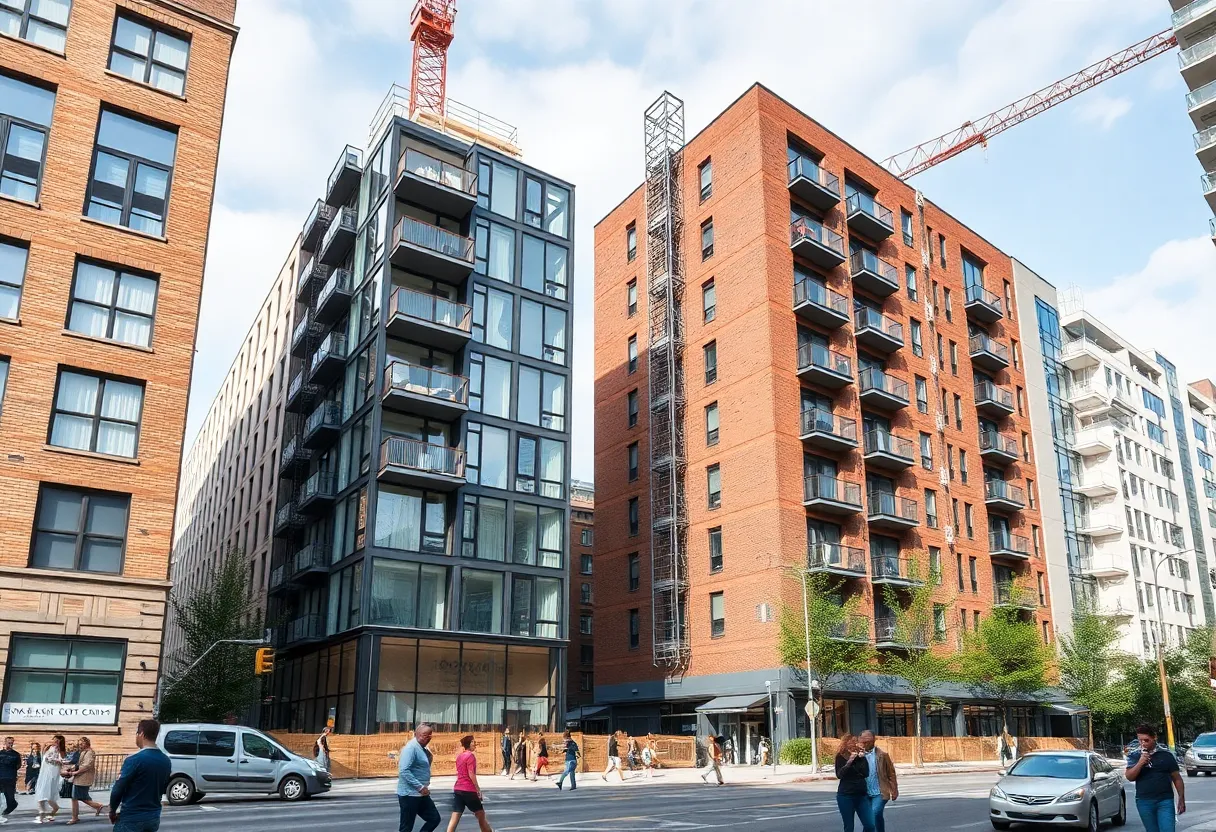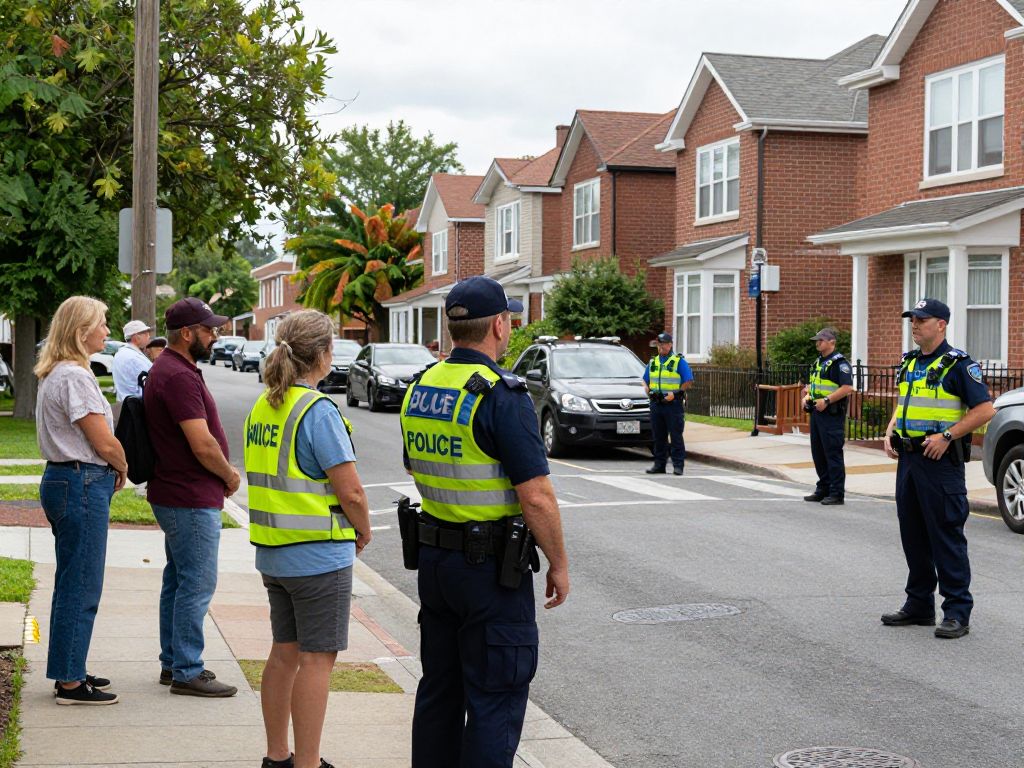News Summary
Massachusetts is addressing a significant housing shortage by converting older office buildings into residential units. With 15 office-to-residential projects proposed or approved in Boston alone, developers aim to expedite housing availability. Adaptive reuse projects are gaining popularity due to their community acceptance, as seen with WinnDevelopment’s efforts in Worcester. The Healey-Driscoll administration launched the Commercial Conversion Initiative to further promote these conversions. Despite only one project under construction, the initiative represents a critical strategy to alleviate the housing crisis in the state.
Boston – Massachusetts is facing a severe housing shortage, which has led to developers in the state pushing forward with plans to convert older office buildings into residential units. This approach is seen as a quicker alternative to traditional new construction, helping to address the pressing need for more housing options. Currently, there are 15 office-to-residential conversion projects in Boston that have either been proposed or approved, with a total of 762 new residential units being created as of May 2024.
Similar initiatives are also taking shape in other cities throughout Massachusetts. Cities like Worcester and Lowell are witnessing developers exploring conversion opportunities, as state and local governments ramp up their support by incentivizing and partnering with these developers to increase the available number of housing units available to residents.
Many developers are turning to adaptive reuse projects as they tend to require less pushback from communities, converting underutilized buildings into valuable assets. This method is gaining traction, as developers like WinnDevelopment are recognizing the benefits of transforming these spaces. The company is particularly focused on retrofitting older buildings due to a growing public endorsement of such projects, which have become known as “anti-NIMBYism.”
WinnDevelopment has plans to convert the historic Slater Building in Worcester into an apartment complex, taking advantage of its U-shaped design, which is favorable for residential layouts. Furthermore, Massachusetts’ Healey-Driscoll administration has launched the Commercial Conversion Initiative in May 2024, aimed at expediting the production of housing from these types of conversion projects. In addition, MassHousing has designated up to $1 million in planning funds to assist developers in identifying suitable buildings for conversion.
A case in point is Boston-based landlord Synergy, which has received state funds to convert office buildings in Worcester into 198 market-rate apartments. The financing landscape is competitive, with two significant projects in downtown Boston recently securing substantial funding. KS Partners obtained $3.4 million for an 80-unit conversion project at 50 Court Square, while Dinosaur Capital Partners received $4 million for a 110-unit conversion at 31 Milk Street. It is noteworthy that Dinosaur Capital’s project required state, city, and federal subsidies to achieve financial viability.
Despite the momentum, there has only been one office conversion project currently under construction in Boston out of the 15 proposed initiatives. This is the Boston Pinnacle Properties’ 281 Franklin St. project, which is set to consist of 15 residential units across 11,000 square feet. To further support housing initiatives, Boston has expanded its payment in lieu of tax (PILOT) program to include universities and employers to foster student and worker housing development.
Additionally, the city’s PLAN: Downtown zoning guide proposes changes aimed at streamlining the planning process for these conversion projects. The Cruz Companies are converting a former children’s home in New Bedford into 28 mixed-income housing units, as part of a broader initiative that brings the overall project to 83 units.
WinnDevelopment specializes in adaptive reuse, demonstrated by their work transforming old mill houses into residential units, such as the Stone Mill Lofts in Lawrence opened last year. Another notable conversion is the Residences at Mill 8 in Ludlow, which represents a $43.2 million industrial-to-residential change, comprising 95 age-restricted and partially affordable units, supporting the trend of adaptive reuse with various forms of state funding.
Overall, Massachusetts has constructed only 450,000 homes over the past 35 years despite a growing population, underscoring the urgency of addressing the housing crisis. The focus on converting vacant office buildings into residential units is emerging as a critical strategy for alleviating this significant housing demand, as the state continues to explore innovative solutions to its housing shortage.
Deeper Dive: News & Info About This Topic
HERE Resources
Bulfinch Cos. Proposes Mixed-Use Development in Needham
New Hotel Development Planned for Boston’s Seaport District
Boston’s Office Buildings Converted into Residential Units
Additional Resources
- Bisnow: Developers Pursue Anti-NIMBYism Solution to Add Housing in Massachusetts
- Wikipedia: Housing Crisis
- Boston 25 News: Massachusetts Suburbs Convert Empty Offices into Housing
- Google Search: Adaptive Reuse Office Conversion
- Housing Finance: Massachusetts School Buildings to Become Housing
- Encyclopedia Britannica: Adaptive Reuse

Author: STAFF HERE BOSTON WRITER
The BOSTON STAFF WRITER represents the experienced team at HEREBoston.com, your go-to source for actionable local news and information in Boston, Suffolk County, and beyond. Specializing in "news you can use," we cover essential topics like product reviews for personal and business needs, local business directories, politics, real estate trends, neighborhood insights, and state news affecting the area—with deep expertise drawn from years of dedicated reporting and strong community input, including local press releases and business updates. We deliver top reporting on high-value events such as Boston Marathon, Head of the Charles Regatta, and Boston Harborfest. Our coverage extends to key organizations like the Greater Boston Chamber of Commerce and Associated Industries of Massachusetts, plus leading businesses in finance, biotech, and insurance that power the local economy such as Fidelity Investments, Biogen, and Liberty Mutual Insurance. As part of the broader HERE network, we provide comprehensive, credible insights into Massachusetts's dynamic landscape.





